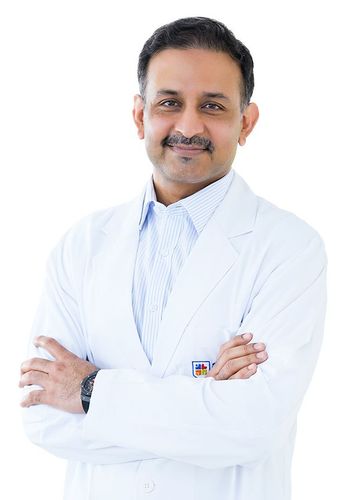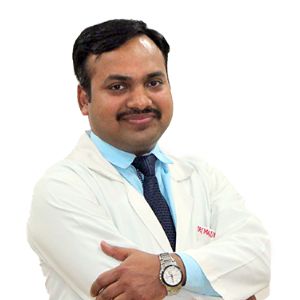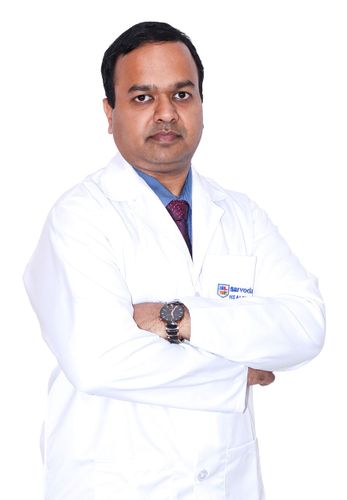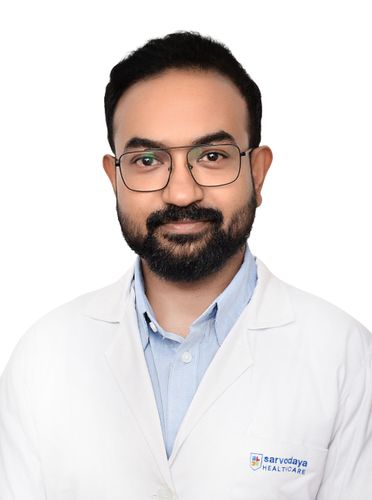Overview
Arthroscopic ACL Reconstruction is a minimally invasive procedure used to restore stability and function in knees affected by ligament tears, particularly the anterior cruciate ligament (ACL). At Sarvodaya Hospital, we specialise in advanced ACL injury treatment, combining surgical precision with evidence-based rehabilitation to help patients regain mobility and return to active lifestyles.
Whether caused by sports, trauma, or overuse, ACL injuries require expert attention. As a trusted centre for orthopaedic surgery in Faridabad, Delhi NCR, we focus on accurate diagnosis, customised care, and comprehensive recovery planning for optimal outcomes.
Why is ACL Reconstruction Required?
ACL Reconstruction becomes necessary when the anterior cruciate ligament (ACL) is torn or ruptured, usually due to sports injuries, falls, or sudden twisting movements. Individuals may experience persistent knee instability, pain, swelling, and difficulty performing routine activities, especially if the knee frequently "gives way."
Surgical intervention is commonly required in cases of complete ACL tears, failed conservative treatments like physiotherapy, or associated injuries such as meniscus damage or recurrent dislocations.
For active individuals and athletes, timely reconstruction is crucial to restore stability, prevent long-term cartilage degeneration, and improve ACL injury recovery time with proper rehabilitation.
ACL Reconstruction Procedure
ACL reconstruction at Sarvodaya Hospital is typically performed using a minimally invasive arthroscopic technique. Through small keyhole incisions, a high-definition arthroscope is inserted to provide real-time visualisation of the knee joint. The damaged ACL is carefully removed, and bone tunnels are created in the femur and tibia to accommodate the new ligament.
A graft, usually harvested from the patient’s own hamstring or patellar tendon (autograft), or occasionally a donor graft (allograft), is then positioned and securely fixed using surgical screws or anchors. This precise, tissue-sparing method allows for accurate graft placement, reduced soft tissue damage, and a quicker, smoother recovery, supported by targeted ACL injury treatment exercises under expert guidance.
Benefits of Arthroscopic ACL Reconstruction
Arthroscopic ACL reconstruction is a preferred choice for treating ligament injuries due to its minimally invasive nature, faster recovery, and long-term success. At Sarvodaya Hospital, our expert orthopaedic team uses advanced techniques to ensure optimal outcomes with reduced discomfort.
- Minimally Invasive: Performed through tiny incisions, resulting in less muscle and soft tissue trauma.
- Faster Recovery: Enables early mobilisation, shorter hospital stay, and quicker return to sports or work.
- Lower Risk of Complications: Reduced infection rates, minimal blood loss, and faster wound healing.
- Precise Graft Placement: High-definition visuals guide exact positioning of the new ligament.
- Improved Joint Stability: Restores knee function, strength, and flexibility for daily and athletic activities.
- Cosmetic Advantage: Smaller scars and better cosmetic outcomes due to keyhole surgery.
- Enhanced Surgical Outcomes: Higher success rates, fewer re-injuries, and long-term knee health.
Post-treatment Lifestyle Modifications
Successful recovery after ACL reconstruction depends on a disciplined lifestyle and consistent rehabilitation. At Sarvodaya Hospital, each patient receives a personalised recovery roadmap led by the best orthopaedic doctor in Faridabad.
- Physical Rehabilitation: Follow a structured physiotherapy plan to rebuild strength, mobility, and joint control.
- Activity Restrictions: Refrain from jumping, pivoting, or contact sports for several months to protect the new graft.
- Weight Management: Keep your weight in check to minimise stress on the healing ligament.
- Knee Bracing (if advised): Use a supportive brace in the early phase to maintain knee stability during movement.
- Lifestyle Adjustments: Be mindful while climbing stairs, kneeling, or walking long distances as per your doctor’s advice.
- Follow-up Visits: Attend scheduled check-ups to assess healing progress and fine-tune your recovery plan.
- Return to Sports: Resume sports only after 6–9 months and with clearance from your orthopaedic surgeon.









